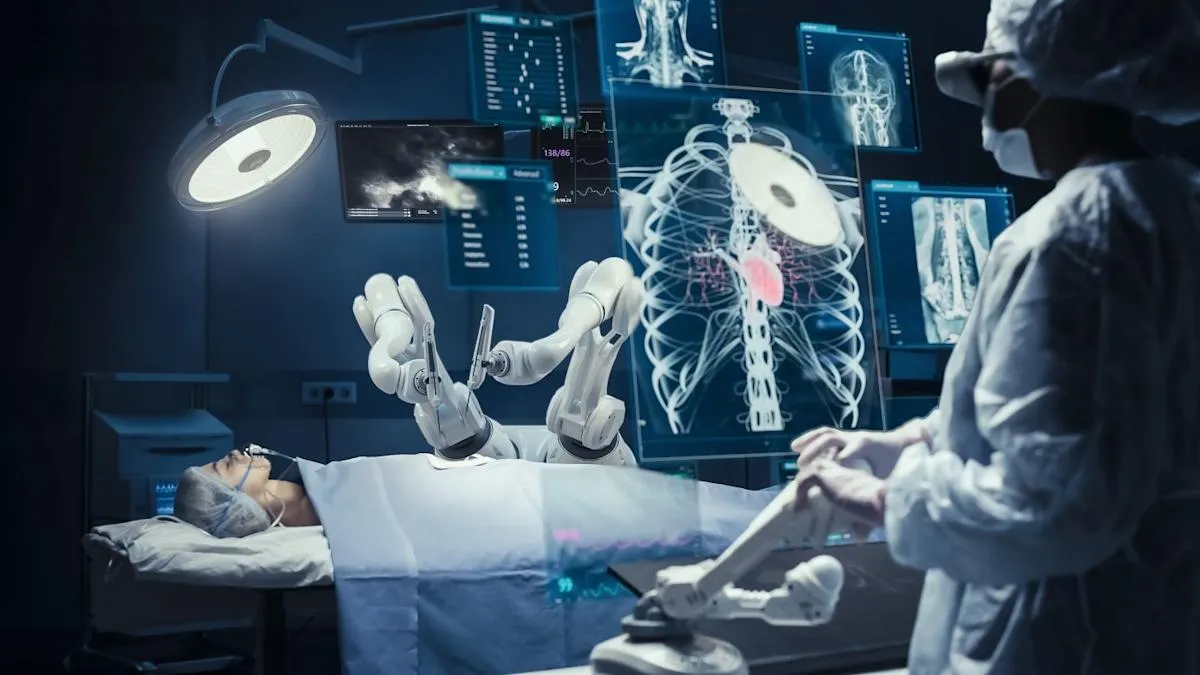News
NHS Introduces AI Diagnostics System Across Major Hospitals

The National Health Service (NHS) has officially launched a groundbreaking artificial intelligence diagnostics system across major hospitals in England, marking a historic leap in the modernization of healthcare. Designed to enhance the speed, accuracy, and efficiency of medical diagnoses, this system represents one of the most significant digital transformations in the NHS’s 75-year history. The initiative aims to reduce diagnostic delays, improve patient outcomes, and alleviate pressure on healthcare professionals amid rising demand for services.
Revolutionizing Healthcare with Artificial Intelligence
The AI diagnostics system has been rolled out in 45 major hospitals, with plans for nationwide adoption by 2027. Built on advanced machine learning algorithms, the system can analyze complex medical data, such as X-rays, CT scans, MRIs, and pathology results, within seconds. According to NHS Digital, early trials have shown that the AI model can identify abnormalities in imaging scans with up to 95 percent accuracy, outperforming traditional diagnostic timelines by several hours.
The technology is designed to work alongside medical professionals rather than replace them. By automating routine image analysis and data interpretation, AI enables clinicians to focus on critical decision-making and patient care. In radiology, for instance, the system helps detect conditions such as lung cancer, strokes, and heart disease in their earliest stages. The tool also assists in identifying rare diseases that are often difficult to diagnose using conventional methods.
Doctors report that the system’s ability to cross-reference patient histories with large-scale medical databases has already proven invaluable. In pilot programs conducted in Manchester and Birmingham, AI-assisted diagnosis led to a 20 percent improvement in early cancer detection rates and a 30 percent reduction in hospital readmissions. The use of predictive analytics has also helped hospitals allocate resources more efficiently, allowing staff to prioritize patients based on risk levels.
Beyond diagnostics, the NHS AI platform includes real-time monitoring capabilities for intensive care units. By tracking vital signs and biochemical data, the system can predict potential health crises before they occur, giving doctors and nurses more time to intervene. This shift toward proactive care marks a major step in transforming the NHS from a reactive to a predictive healthcare model.
Efficiency, Accessibility, and Patient Outcomes
One of the most promising aspects of the new AI system is its potential to tackle long-standing challenges in healthcare accessibility and efficiency. NHS hospitals have faced mounting pressure from an aging population, chronic staff shortages, and post-pandemic backlogs. The integration of artificial intelligence into diagnostic workflows is expected to reduce waiting times and enhance consistency in medical assessments.
By automating repetitive tasks, the AI system can process thousands of patient images and records each day, freeing up radiologists, pathologists, and clinicians to focus on complex cases that require human expertise. This improvement not only accelerates the diagnostic process but also reduces the risk of human error caused by fatigue or information overload.
For patients, faster and more accurate diagnoses mean quicker treatment decisions and better health outcomes. Early intervention is critical for conditions such as cancer and cardiovascular disease, where timely detection can significantly improve survival rates. In addition, the AI platform’s predictive features enable continuous monitoring of patients with chronic illnesses, allowing for more personalized and adaptive treatment plans.
The NHS has also ensured that the AI system supports integration across multiple hospital networks. Patients can now have their medical data securely shared between facilities, minimizing duplication and improving continuity of care. All data is encrypted and processed under strict NHS cybersecurity standards, ensuring patient privacy and compliance with the UK’s Data Protection Act and GDPR regulations.
Accessibility remains a central goal. The AI system is being implemented not only in urban hospitals but also in regional and rural medical centers, where shortages of diagnostic specialists are most acute. By centralizing data processing through cloud-based infrastructure, hospitals in smaller communities can access the same high-quality diagnostic support as major metropolitan institutions.
Challenges and Future Prospects
While the benefits of AI in healthcare are transformative, experts caution that successful implementation will depend on ongoing training, transparency, and trust. Clinicians must understand how to interpret AI-generated insights and integrate them responsibly into patient care. The NHS is investing heavily in digital literacy programs to ensure that medical staff are fully prepared for the new system.
There are also ethical considerations around algorithmic bias and data management. To address these concerns, the NHS has established an independent oversight board to monitor system performance and ensure fairness across demographic groups. Regular audits will evaluate accuracy and prevent disparities in diagnosis quality between different patient populations.
Looking ahead, the NHS plans to expand the AI system’s capabilities to include genetic analysis, virtual triage, and automated treatment recommendations. Collaborations with British research institutions and technology companies will drive continuous innovation, ensuring that the system remains adaptable as medical knowledge evolves.
The long-term vision extends beyond hospitals. Future phases of the project will integrate AI diagnostics with primary care networks and telemedicine services, allowing general practitioners to use real-time AI insights during remote consultations. This integration could make high-quality healthcare more accessible than ever before, especially for patients in remote or underserved areas.
Conclusion
The introduction of the AI diagnostics system marks a defining moment for the NHS and for the future of healthcare in the UK. By leveraging artificial intelligence to improve accuracy, efficiency, and accessibility, the NHS is setting a global example of how technology can empower healthcare professionals and transform patient outcomes.
This innovation underscores the NHS’s enduring mission to provide equitable, high-quality care to all citizens. As AI continues to evolve, its integration within the NHS will not only modernize diagnostic medicine but also strengthen the foundation of a healthcare system built on compassion, precision, and progress.












